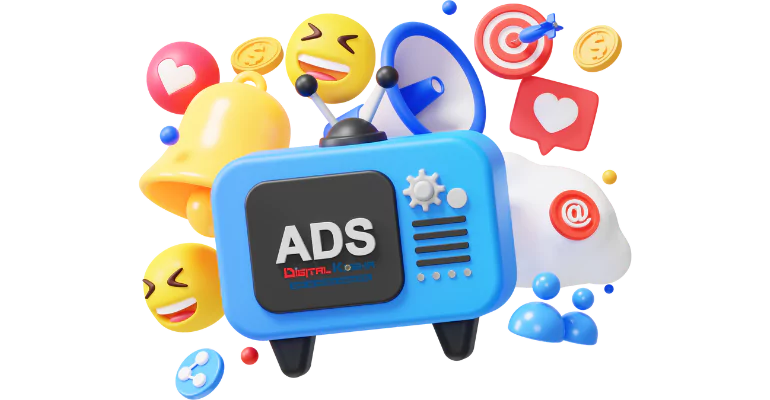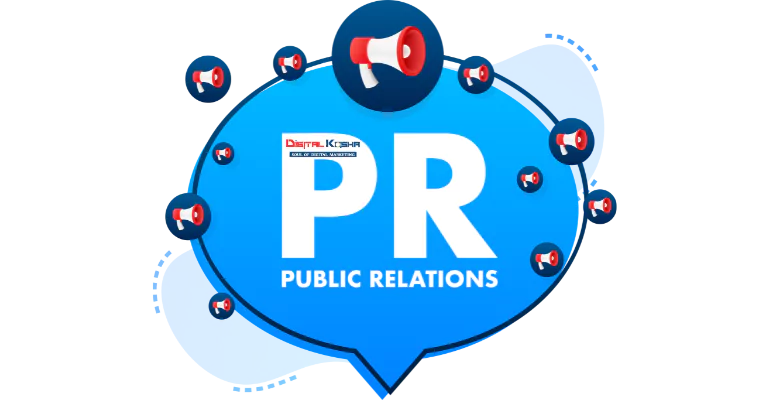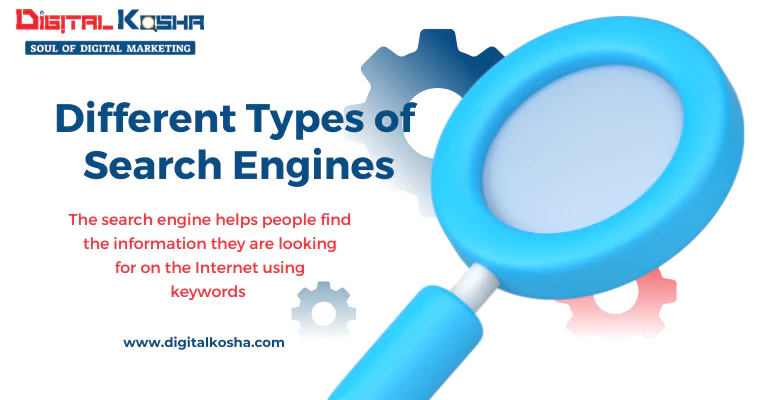In today’s fast-paced world, digital marketing has become an essential tool for businesses aiming to thrive in the competitive marketplace. The internet has transformed the way businesses reach their target audiences, making traditional marketing methods less effective. With billions of people online, digital marketing allows businesses to connect with a vast global audience, offering tailored solutions that suit the evolving needs of the modern consumer.
Whether you’re a business owner looking to increase your brand visibility or a digital marketing enthusiast eager to understand the field better, this comprehensive guide will walk you through all the vital aspects of digital marketing.
What is Digital Marketing?
Digital marketing refers to all marketing efforts that use an electronic device or the internet. Businesses leverage various online channels such as search engines, social media platforms, email, and websites to connect with current and prospective customers. It differs from traditional marketing in that it allows marketers to analyze campaigns and understand what works and what doesn’t in real-time.
The beauty of digital marketing lies in its versatility and the ability to reach targeted audiences on platforms they are already spending their time on.
Why is Digital Marketing Important?
The importance of digital marketing cannot be overstated in today’s digital-first world. Here’s why:
- Global Reach: Unlike traditional marketing, which is limited to a specific geographic area, digital marketing allows businesses to reach a global audience. With online tools, businesses can target specific demographics across borders, giving them access to a larger potential customer base.
- Cost-Effective: Compared to traditional marketing methods such as TV ads or billboards, digital marketing offers a much more affordable way for businesses to market their products or services. With the ability to track ROI, businesses can see what is working and adjust their strategies to maximize their budget.
- Measurable Results: One of the major advantages of digital marketing is the ability to measure results in real-time. Businesses can track how well their campaigns are performing, see how many people are engaging with their content, and make data-driven decisions to optimize future campaigns.
- Targeted Audience: With digital marketing, businesses can target their marketing efforts to a specific audience. Whether it’s using social media ads to target individuals based on their interests or using email marketing to reach past customers, digital marketing ensures your message reaches the right people at the right time.
Key Components of Digital Marketing
To understand digital marketing, it is essential to know the key components and how they work together to form a cohesive strategy. Let’s break down the core elements of a digital marketing plan:
1. Search Engine Optimization (SEO)
Search Engine Optimization (SEO) is the process of optimizing your website to rank higher in search engine results pages (SERPs), thus increasing organic traffic. When users search for specific keywords related to your business, you want your website to be one of the first options they see.

There are two primary types of SEO:
- On-page SEO: Refers to the tactics applied on your website, such as using relevant keywords, creating high-quality content, optimizing meta tags, and ensuring mobile-friendliness.
- Off-page SEO: Involves actions taken outside your website, such as acquiring backlinks from authoritative sites, social media promotion, and guest blogging.
Effective SEO helps businesses improve their visibility on search engines like Google, driving valuable traffic that can convert into leads and sales.
2. Pay-Per-Click (PPC) Advertising
Pay-Per-Click (PPC) is an internet advertising model where advertisers pay a fee each time one of their ads is clicked. Essentially, it’s a way of buying visits to your site rather than earning them organically.

Google Ads is the most common form of PPC advertising, allowing businesses to display ads on Google’s search engine and other Google properties. Other platforms like Bing Ads and social media channels (e.g., Facebook Ads, Instagram Ads) also offer PPC options.
The goal of PPC advertising is to drive targeted traffic to your website. Since you’re paying for every click, it’s crucial to optimize your campaigns to ensure they generate meaningful results and ROI.
3. Social Media Marketing
Social media marketing involves using platforms like Facebook, Twitter, Instagram, LinkedIn, and YouTube to promote your business. With billions of active users on social media, these platforms offer a huge potential for businesses to engage with their audience, build brand awareness, and drive conversions.

Effective social media marketing involves:
- Content creation: Posting relevant, engaging content that resonates with your audience.
- Paid social ads: Promoting posts or creating targeted ads that appear to specific audiences based on demographics, interests, and behavior.
- Community engagement: Interacting with your audience through comments, likes, shares, and direct messages to foster a strong online community.
A successful social media presence can significantly enhance brand loyalty and increase customer trust.
4. Content Marketing
Content marketing focuses on creating, publishing, and distributing valuable content to attract and engage a target audience. The goal is to provide helpful, informative, and engaging content that solves problems, answers questions, or fulfills a need for the audience, ultimately driving them towards your products or services.

Key elements of content marketing include:
- Blogging: Writing blog posts on topics related to your industry that provide value to your audience and improve your website’s SEO.
- Infographics: Visual representations of data or information that can be easily shared across platforms.
- Video marketing: Creating videos that educate, entertain, or inspire your audience.
- Ebooks and whitepapers: In-depth resources that offer insights into a specific topic.
By consistently delivering high-quality content, businesses can position themselves as industry thought leaders and build trust with their audience.
5. Email Marketing
Email marketing is one of the most direct and effective methods of communicating with your audience. It involves sending newsletters, promotional offers, or informational content to a list of subscribers who have opted in to receive updates from your business.

The benefits of email marketing include:
- Personalization: Tailoring your email content to individual preferences and behavior for more meaningful engagement.
- Segmentation: Dividing your audience into specific groups to send them the most relevant messages.
- Automation: Setting up automated email sequences to nurture leads and guide them through the customer journey.
When done right, email marketing can drive significant revenue and build long-lasting customer relationships.
6. Affiliate Marketing
Affiliate marketing is a performance-based marketing strategy where businesses reward affiliates (partners) for driving traffic or sales to their website. Affiliates promote a company’s products or services through unique referral links, and when a sale is made through that link, the affiliate earns a commission.

This strategy benefits both businesses and affiliates, as it provides an additional revenue stream for businesses and an earning opportunity for affiliates.
7. Influencer Marketing
In the era of social media, influencer marketing has gained immense popularity. It involves partnering with individuals who have a large and engaged following to promote your products or services. Influencers can create content around your brand and share it with their audience, generating brand awareness and driving sales.

When selecting influencers, it’s important to choose those who align with your brand values and have a relevant audience that matches your target market.
8. Online PR
Online PR is similar to traditional public relations, but it occurs in the digital space. It involves gaining coverage for your business on online publications, blogs, and other media outlets. Techniques include reaching out to journalists, influencers, and bloggers to feature your business in articles, reviews, or interviews.

Online PR helps build brand credibility and trust while also improving your search engine rankings through the generation of backlinks.
Digital Marketing Strategies to Grow Your Business
To make the most of digital marketing, businesses need a well-thought-out strategy that aligns with their goals. Here’s how to develop an effective digital marketing strategy:
1. Define Your Goals
Before jumping into any marketing activity, it’s essential to define clear and measurable goals. Are you aiming to increase brand awareness, generate leads, boost sales, or improve customer retention? Your digital marketing efforts should be focused on achieving these specific objectives.
2. Understand Your Audience
Knowing your audience is the key to creating a successful digital marketing strategy. Research your target market’s demographics, preferences, pain points, and behaviors. Understanding your audience will allow you to craft personalized campaigns that resonate with them.
3. Develop a Multi-Channel Approach
A successful digital marketing strategy involves using multiple channels to reach your audience. Each channel serves a unique purpose, and when used together, they can create a comprehensive and cohesive marketing plan.
For instance, SEO can drive organic traffic, while PPC can generate instant results. Social media can build brand loyalty, and email marketing can nurture leads over time.
4. Focus on Quality Content
Content is the foundation of any successful digital marketing strategy. High-quality, relevant, and engaging content will not only attract your audience but also keep them coming back for more. Invest in creating valuable blog posts, videos, infographics, and other types of content that speak to your audience’s needs.
5. Measure and Optimize
One of the greatest advantages of digital marketing is the ability to track performance. Use analytics tools like Google Analytics, social media insights, and email marketing platforms to monitor your campaigns’ effectiveness. Adjust your strategies based on the data to ensure you’re continually improving.
The Future of Digital Marketing
As technology evolves, digital marketing is also expected to grow and transform. Some trends to watch out for include:
- AI and Machine Learning: Artificial intelligence is making digital marketing smarter by helping businesses automate tasks, personalize experiences, and analyze data more efficiently.
- Voice Search: With the rise of voice-activated devices like Amazon Alexa and Google Home, optimizing for voice search is becoming crucial.
- Video Marketing: Video content is dominating social media and becoming a primary means of communication for brands. Expect video marketing to continue evolving, with interactive and shoppable videos leading the way.
- Data Privacy: As privacy concerns grow, businesses need to prioritize transparency and comply with regulations like GDPR to maintain customer trust.
Conclusion
Digital marketing has revolutionized the way businesses interact with their audience. By leveraging SEO, PPC, social media, content, email, and other digital strategies, businesses can not only reach a larger audience but also engage with them on a deeper level.
The key to success in digital marketing lies in staying informed about the latest trends, continuously optimizing strategies, and delivering value to your audience. Whether you’re a small business owner or a seasoned marketer, mastering digital marketing is essential to thriving in the modern business landscape.
Now that you have a comprehensive understanding of digital marketing, it’s time to take action, implement these strategies, and watch your business grow!
- 280+ The Best Belgium Classifieds Sites List for Free
- 250+ The Best Free France Business Listing Sites List
- 280+ The Best Free France Classified Submission Sites List
- The Complete Guide to Content Marketing in Digital Marketing
- 220+ The Best Free Classified Sites in Singapore
- 225+ Best Free Singapore Business Listing Sites List
- 225+ The Best Free Sri Lanka Classified Sites List
- 410+ The Best Free Sri Lanka Business Sites List
- 330+ The Best Bangladesh Classifieds Sites List
- 120+ The Best Bangladesh Business Listing Sites
- 225+ Best Free Business Listing Sites in South Africa
- 170+ Best Free Classified Sites in South Africa
- 500+ The Best Canada Business Listing Sites Free
- 350+ The Best Free Classified Submission Sites in Canada
- 140+ The Best Free Classified Sites List Without Registration



